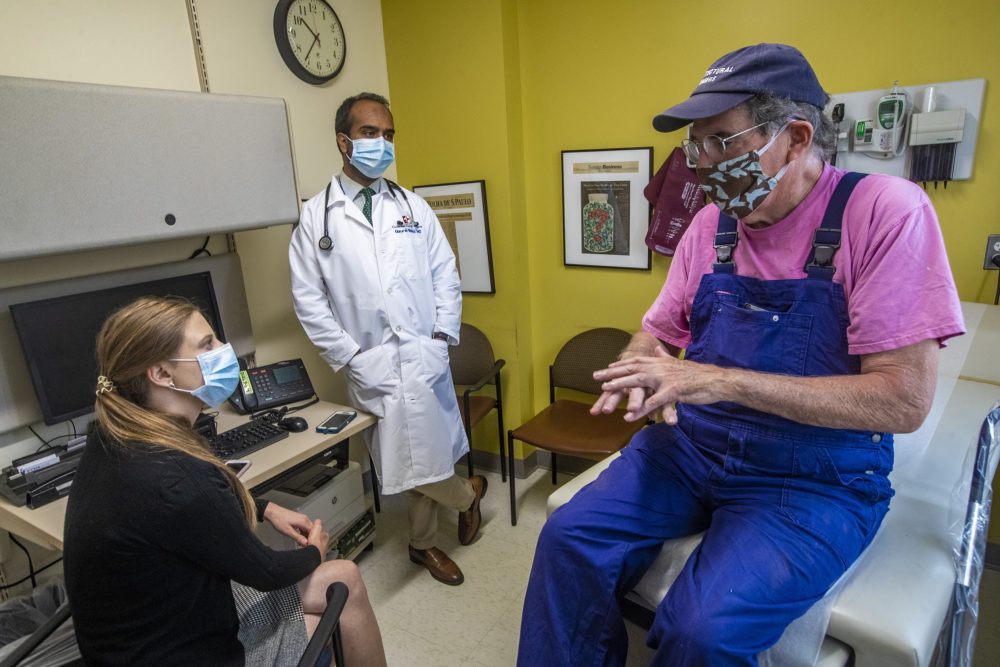Teaching Doctors In Training To Connect Climate Change And Health Care

Patient Stephen Kearns describes to doctors Charlotte Rastas and Gaurab Basu the issues he was experiencing after contracting the West Nile Virus during a follow up appointment at CHA Somerville Hospital. (Jesse Costa/WBUR)
It was low tide on the North Shore of Boston when Steve Kearns felt the mosquito bite that would land him in a hospital with West Nile Virus disease for a week.
“For at least six months after that, I felt like every five minutes I was being run over by a truck,” Kearns says. “I couldn’t work, I couldn’t walk very well, and I couldn’t focus. I wondered for a bit if I’d ever get better.”
Kearns recounts the experience during a check-up with his physician, Dr. Gaurab Basu and Dr. Charlotte Rastas, a third year resident in primary care at a Cambridge Health Alliance clinic in Somerville. Kearns, who is 71, has made a lot of progress in the nearly two years since he was bitten. He can manage about five hours at his job, building custom windows and doors, and he’s back to a beloved pastime: reading.
Basu had never seen West Nile in a patient before Kearns. The first reported case in Massachusetts was in 2002. By 2018, the year a mosquito bit Kearns, there were 49.
“When someone comes in with a fever and is confused, it’s not what my mind thinks of as the diagnosis right away,” Basu says. “This case has really taught me how much I need to be informed about the ways in which climate change is changing the patterns of infectious disease around the United States.”
As Basu learned, rising temperatures offer longer breeding seasons for mosquitos, boost the virus replication rate, and make mosquitos more active. Basu has added these and other effects of climate change to an elective course he offers residents.
Read the rest of this story at WBUR’s website.
